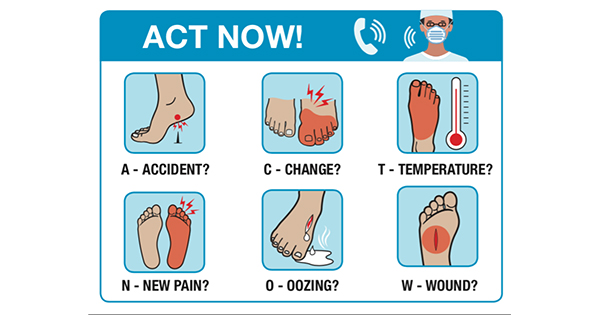The National Service Framework for Diabetes and the Clinical Standards Board for Scotland have very little to say about diabetic foot care. What is clear is that diabetic foot care will need a group of dedicated and additionally trained diabetic foot practitioners to carry through the proposed screening and ulcer care programmes that will be required in every strategic health authority. The NHS Changing Workforce programme will also drive this agenda.
Many of the editorials in The Diabetic Foot journal over the past year have raised a number of questions about where podiatry has to go. These issues will be discussed further in this year’s Diabetic Foot Journal’s Conference (Glasgow in April; London in September). However, it is time that the professionals within the diabetic foot team take the initiative in this process and drive it from its grass roots.
Career models
The medical career model currently follows a path of undergraduate training, followed by basic training and then higher specialist training. In medicine it is unusual that a consultant diabetologist would study cardiology or surgery, but this model of education seems to be the path chosen for podiatrists where generalism is favoured over specialisation.
This cannot continue. In its most developed form the diabetic foot team is, one of the best examples of true multiprofessional working to be found in the health service. Each member of the team needs to be a specialist in their own field. A career structure for podiatrists and nurses to reflect this would also be of benefit.
PDUK
Diabetic foot practitioners are about to be given a voice in this process. A new group, Podiatry Diabetes United Kingdom (PDUK), has its first call for membership in this issue (see page 10). Mainly aimed at podiatrists, it will be open to all members of the diabetic foot team.
Survey
A survey of delegates at the Diabetic Foot Journal’s Conferences in 2002 suggests that 86% (of the 200 respondents) want to join PDUK; the majority work in the NHS and most qualified in the past 10 years. Interesting, two thirds of the diabetic foot practitioners who have expressed an interest in PDUK work in the community, which will suit the new model of diabetes care. The majority do not work full time in diabetes care (54% work less than 3 days in diabetes care and 65% work less than 3 days seeing ulcers) and yet half call themselves diabetes specialist titles of some description.
Hopefully, there will soon be some decision as to what constitutes a specialist qualification and scope of practice. I believe that the Society of Chiropodists and Podiatrists and the groups responsible for nurses who debride need guidance on this.
Moving forward
In keeping with the results of the survey PDUK hopes to offers protocols, tailored teaching/CPD, networking, research, paper access and career advice. I urge all those interested in diabetic foot care and my fellow consultants, who are still usually looked to as leaders of the diabetic team, who wish to support this initiative, to write to Louise Stuart at Salford or Neil Baker at Ipswich, and then we can move this forward.





